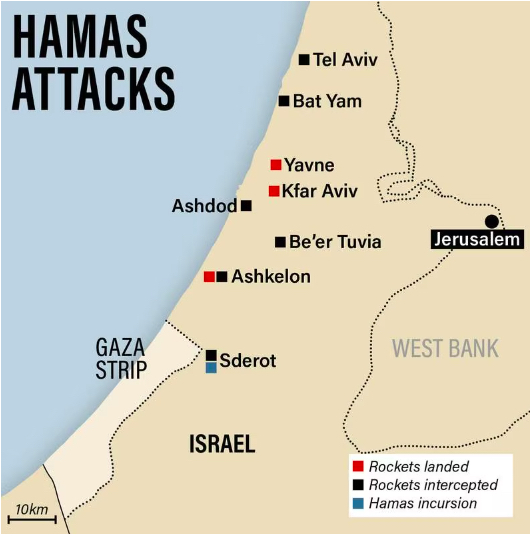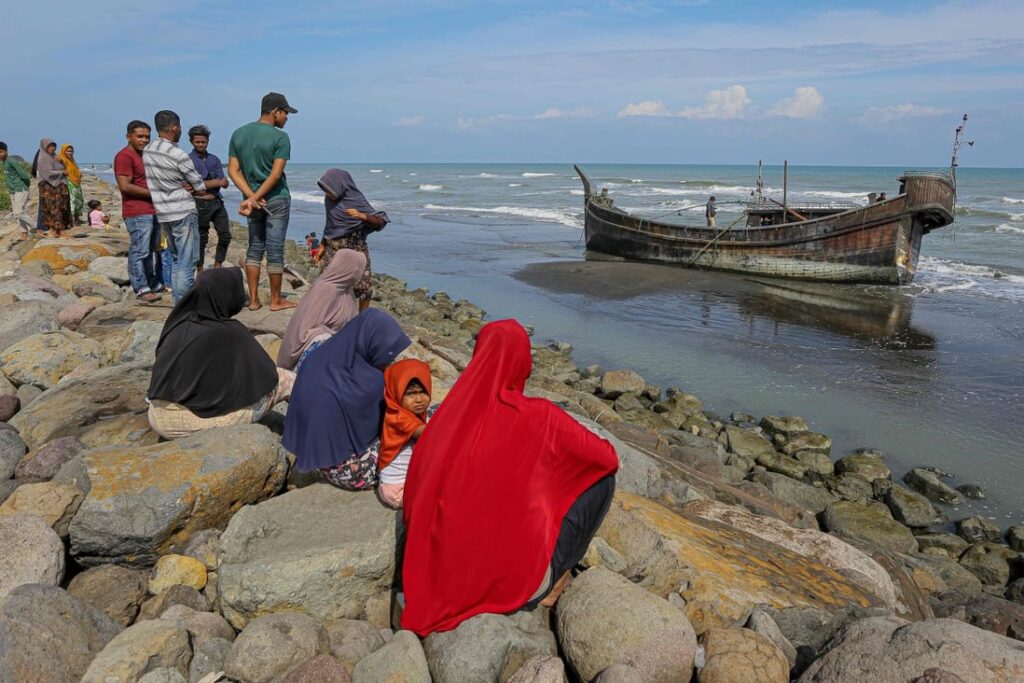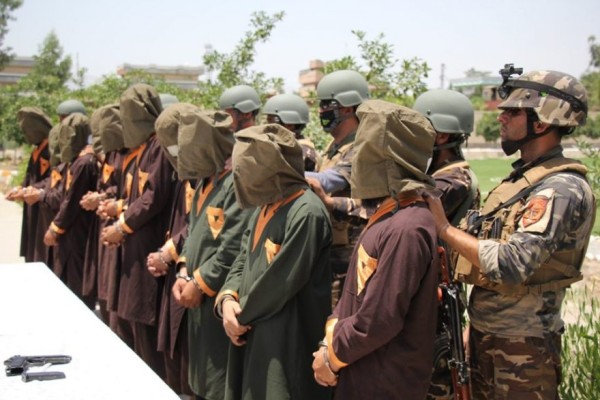MANTRAYA SPECIAL REPORT#02: 16 JULY 2015
SURYA VALLIAPPAN KRISHNA & BIBHU PRASAD ROUTRAY
Abstract
Over the past year, a number of Indians and people of Indian origin have been associated with the Islamic State in Iraqand Syria. Mantraya.org profiles these individuals who have shared different categories of alliances with the Islamic State as fighters, propagandists, fan-boys, wannabe extremists and even people willing to live and perish in the established Caliphate. There is no agreement on the actual number of Indians or people of Indian origin associated with the Islamic State. This special report by Mantraya, the only one of its kind till date, focuses on the confirmed participants.
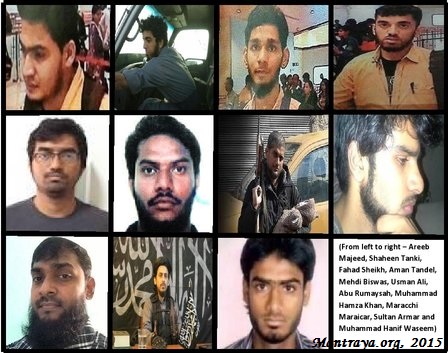
1. The MODULE
Imran Khan Muhammad Sharif
Imran Khan Muhammad Sharif was the leader of the first Islamic State module in India. Comprised of four other members – Wasim Khan, Mohammad Rizwan, Anwar and Mazhar – the module was busted and all five men were arrested in Ratlam in Mandhya Pradesh on 15 April 2015 on charges of planning terror strikes within India. Chemicals used to manufacture explosives were reportedly recovered from Imran Khan.
Imran Khan was the son of a clerk in Madhya Pradesh government’s rural education department. In 2001, he dropped out of an undergraduate business course at Royal College in Ratlam, having completed just four semesters. Immigration stamps on his passport detail five trips undertaken to Dubai and one to Saudi Arabia. While his family insists that these trips were made in search of employment, nothing materialised from these visits. Frustration and economic reasons led Khan to turn religious. In 2012, Khan joined Ahl al-Suffah, an Islamic proselytising and charity group led by a local resident Amjad Khan. However, he was expelled from the group after displaying radical tendencies. Wasim Khan, Mohammad Rizwan, Anwar and Mazhar were Ahl al-Suffah members.
Khan’s entry into the Islamic State network was facilitated by Muhammad Shafi Armar (also known as Yusuf). The two met and interacted on the Islamic State social media pages and Islamist forums, while Khan was seeking to further radicalize itself by trawling pro- Islamic State Facebook pages run by its supporters.
2. THE KALYAN CLIQUE
Areeb Majeed
Areeb Majeed is the most well-known face of the four-member Kalyan Clique which travelled to Iraq on a religious pilgrimage and then broke away from the group to travel to Mosul to join the Islamic State. Son of a doctor father, Majeed was a 22-year old civil engineering diploma student from an affluent family. A story nothing short of dramatic, he was reported dead in late August 2014 but made a surprise return to India three months later, in late November. Arrested upon his return, investigations threw up many facts of Majeed being a trained suicide bomber, that the Islamic State had lethal plans for India and also that Majeed was disillusioned with the menial work he was assigned in the conflict zone rather being allowed adventurous Jihad.
Majeed studied at a polytechnic college in Vashi, Mumbai. His radical tendencies were also initiated and sustained by internet chat rooms and Jihadist forums. He also claimed to have been lured by a love interest, Tahira Bhatt on social media. He was particularly motivated after watching violent videos relating to the Israel-Palestine situation. The radicalised Majeed had donated his denims and shirts, and avoided using cellphones a month and half before he left home. Relatives reported that Majeed would stop her sister, a doctor, from watching films and working. On one occasion he even brought her back home from the hospital by force. In a letter left at home before he left for Iraq, Majeed censured his family for “sinning”, “living luxurious lives”, “watching television” and “not praying”.
In the Islamic State-held territory Majeed was reportedly injured by a bullet while working on a construction site. He recovered in a week. Unconfirmed reports indicate that the Islamic State gave him US$2000 and dropped him on the Turkey border to go home. He is currently in custody of the investigative agencies.
Shaheen Tanki
Shaheen Tanki, a 25 year old high school dropout and a call centre employee, was one of four boys from Kalyan who flew to Baghdad on 23 May 2014 to join the Islamic State. Tanki is believed to have been radicalised online, looking at violent content on the internet and was subsequently brainwashed by Adil Dolare, an employee at the Islamic Guidance Centre in Kalyan. Unconfirmed reports of Tanki’s death surfaced in mid-January 2015, although his family rejected those reports.
Fahad Sheikh
Fahad Sheikh, a 25 year old mechanical engineering student at the Nagpada College in south Mumbai, joined the Islamic State after leaving his home in Kalyan in March 2015 and travelling to Iraq. Fahad had become a friend of Areeb Majeed after both met at a mosque and possibly was radicalised by Majeed. Only son in a family with four sisters, Fahad had turned radical and on occasions told his sisters not to watch movies and music and not apply makeup.
According to media reports in March 2015, Fahad was in regular touch with friends and family via telephone and social media and was known to be based in Iraq. During such interactions, Fahad Sheikh reportedly expressed his desire to remain in the Islamic State territory and not return to India.
Aman Naim Tandel
27-year old Aman Tandel, only son of his parents, was in the third year of mechanical engineering course when he left home for Iraq along with the three other members of the Kalyan clique and joined the Islamic State. Belonging to an affluent and educated family, Tandel was described by his neighbours as a “gentle, well-mannered boy” and “like a friend to his father”. He is known to be fighting on behalf of the Islamic State in Iraq.
3. THE OVERSEAS CONNECTION
Haja Farukuddin Usman Ali
Haja Farukuddin Usman Ali, originally from Tamil Nadu, was a 37 year old supermarket manager who had obtained citizenship of Singapore in 2008. In 2007, Ali had met Maracchi Maraicar at Cuddalore where the former had visited as a volunteer on a religious missionary trip. Both became friends because of their radical outlook and their contacts deepened after Maraicar became a permanent Singapore resident in 2008, the same year Ali got his citizenship in that country. In 2013, Ali travelled to Syria with financial support from Maraicar, training briefly in a camp housing Chechen jihadists. Later, he returned to Singapore, and served as a node for the Chennai students who were recruited to serve in Syria. In January 2014, Ali flew out of Singapore with his wife and three children (then aged between 2 and 11) to Turkey and then crossed over the border to Syria. In Jihadist circles, Ali went by the name of Abu Talha and had planned to fund a network of radical Muslims through his contacts in the country.
Abu Rumaysah
Abu Rumaysah (also known as Abu Rumaysah al Britani) is the assumed name of Siddhartha Dhar, born to a British-Indian Hindu family of Bihar-Bengal origin. He had converted to Islam during his teens and had long been estranged from his family. He was a key member of Al-Muhajiroun, led by Bangladesh-origin Islamist Anjem Choudary that has been at the forefront of campaigning for the Islamic State in the United Kingdom. According to reports, there is no record of Rumaysah having visited India in the past several years.
On 27 September 2014, the 31-year old left along with his family for Syria through Paris to join the Islamic State. Dhar was among nine men, including Anjem Choudary, who had been arrested and questioned by police in early September 2014 on suspicion of terrorism offences before being released on bail and ordered to return to police stations in December. However, he jumped bail and later mocked through his Twitter account the “shoddy” British security services which could not prevent him from joining the Islamic State. He expressed his joy in living in the Islamic State, and upon request from followers even posted pictures with his son and rifle on Twitter.
Prior to his flight from Britain, Abu Rumaysah was a familiar face on television representing the Islamist narrative and arguing in favour of the imposition of Shariah Law. On many occasions he spoke in support of the Islamic State and even said that he wished to travel to join the militants. In 2015, Abu Rumaysah published “A brief guide to the Islamic State”, a travel guide of sorts which included sections on food, weather, technology, transportation, people and education facilities in the established caliphate.
Muhammad Hamza Khan
Muhammad Hamza Khan, a 19-year old American citizen of Indian origin was arrested along with his two siblings at the O’Hare International Airport, Chicago on 4 October 2014 where he was planning to fly to Vienna and then onward to Istanbul to join the Islamic State. Khan, his 16-year old brother, and his 17-year old sister appeared to have been radicalised online.
Described as a “gentle boy” by his neighbours, a three page letter left by Khan for his family before attempting to fly out of the country revealed his state of mind and extent of radicalisation. In the letter, he invited his family to the Islamic State, an obligation of every Muslim and cited United States’ brutal foreign policy in the Middle East as the reason for his decision. His sister had previously used the Twitter handle @DeathIsTheeNear to send a favourable tweet about a video of beheadings. She even placed a smiley emoticon in the text.
Police investigations in addition to recovery of pro-Islamic State writings and drawings revealed that Khan was in touch with “an agent” whom he met online. This individual was to escort Khan to Islamic State territory. Khan was keen on a getting public service role with the Islamic State– humanitarian or combat. Khan faces up to a 15 year jail term.
Gul Mohammad Maracchi Maraicar
Gul Mohammad Maracchi Maraicar, a resident of Cuddalore in Tamil Nadu worked as a systems analyst with IBM in Singapore, where in he obtained permanent residency in 2008. He was stripped of his residency status and repatriated to India in February 2014 after investigators found that Maraicar had radicalised Singaporean national Haja Farukuddin Usman Ali who had migrated to Syria along with family members to join the Islamic State. Maraicar had also financed an earlier trip of Ali to Syria where the latter trained with the Chechen jihadists. Upon his repatriation, Maraicar told the Indian authorities that jihadists had successfully recruited two students from a college in Chennai. Maraicar is reportedly cooperating with the investigating authorities in India.
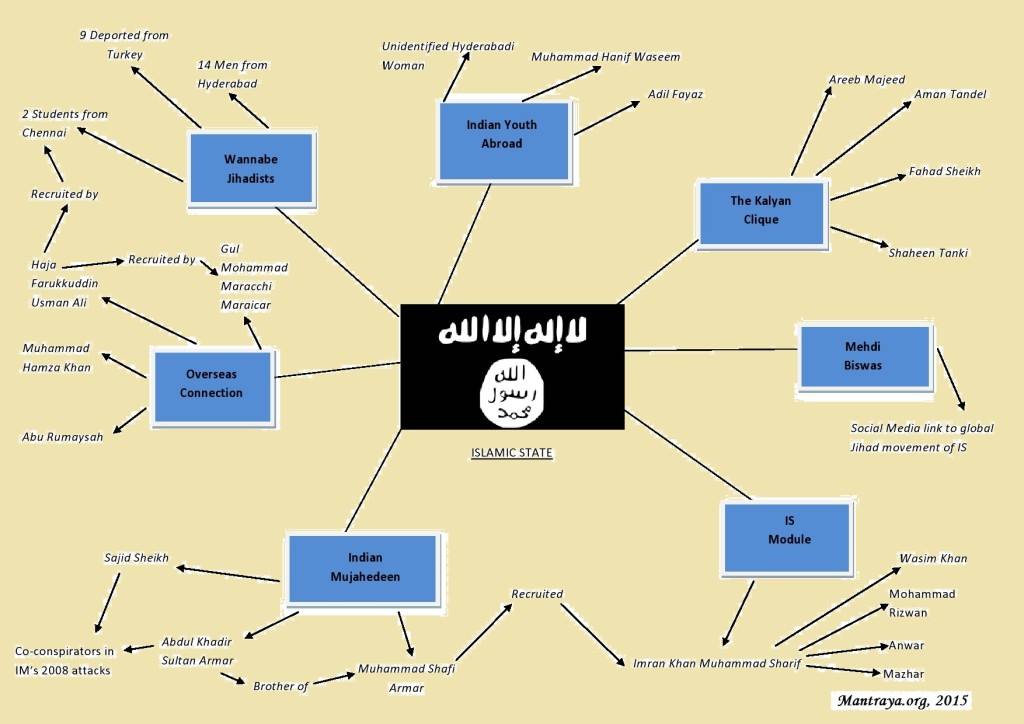
(Graphical representation of the alliances Indians and people of Indian origin share with the Islamic State, on the basis of information available till July 2015.)
4. THE INDIAN MUJAHIDEEN CONNECTION
Sajid Sheikh
30 year old Muhammad Sajid alias Bada Sajid was a senior member of the Indian Mujahideen (IM). He along with Sultan Armar was involved in the IM attacks of 2008 in Delhi, Ahmedabad and Jaipur that killed more than 166 people. Based in Pakistan, Sajid in 2014 was known to be fighting on behalf of the al Qaeda in the Pakistan-Afghanistan border. It is unclear as to when he joined the Islamic State. Known as Abu Turab al-Hindi in the Islamic State, Sajid was reported to have died fighting on 3 July 2015 by the Isabah Media, the propaganda and media wing of Ansar al-Tauhid (AAT).
Muhammad Shafi Armar
Born in 1987 in Karnataka state’s Bhatkal town, Muhammad Shafi Armar alias Yusuf is an IM operative now associated with leading the Indian Jihadists in Iraq and Syria. He recruited and guided Imran Khan on building explosives, acquiring weapons and selecting targets for operations. In May 2015, Islamic State chief Abu Bakr al-Baghdadi announced that Shafi Armar would be the emir of AAT, a recruitment organization for the Islamic State.
Abdul Khadir Sultan Armar
40 year-old Sultan Armar, brother of Muhammad Shafi Armar was the founder of AAT. A fugitive in Pakistan since 2008, Armar broke away from the Karachi based Riyaz Bhatkal-led IM faction and pledged allegiance to the Islamic State. The AAT motivated Muslims to join its training camps along the Af-Pak border. In 2014, Sultan Armar was suspected to have appeared as a masked jihadist in a series of propaganda videos inviting Indian Muslims to train at jihad camps in Pakistan’s North Waziristan. Through such propaganda he managed to recruit group of men from Rajasthan who were arrested for planning attacks in India. AAT Jihadists who went on to fight with the Islamic State formed a group called Ansar-ul-Tawhid fil’Bilad al-Sham. Sultan Armar was reportedly killed while fighting near Kobane on the Syria-Turkey border on 6 March 2015.
5. INDIAN YOUTHS ABROAD
Adil Fayaz
Adil Fayaz, a 26 year-old MBA student at Queensland University, Australia joined the Islamic State in Syria in 2013 by travelling via Turkey and Jordan. Adil was a bright student; had completed his undergraduate studies in Business Administration and Masters in Commerce from Kashmir University before moving to Australia. His father, Fayaz Ahmad Waida, ran a successful contracting business and went on to open a supermarket chain which allowed him to fund his son’s education overseas.
Adil Fayaz had shown no inclination towards political issues but was struggling to find a job in Australia and then in the Middle East after his graduation. In 2013, he found a job of a teacher in Malaysia and travelled to Kuala Lumpur in September that year. Less than a month later, he told his family that he has found another job with an NGO in Turkey. Adil is the first Indian from Kashmir to join the battle against the Bashar al-Assad regime. Australia’s intelligence services believe that the NGO Adil joined is in fact an Australian group, Street Dawah Australia (SDA), closely linked to the Islamic State. The SDA was notorious for its propagation of Islamist narrative and some of its members have joined the ranks of the Islamic State.
Muhammad Hanif Waseem
27 year-old Muhammad Hanif Waseem, one of the three sons of a hotel and real estate businessman in Hyderabad, completed his B.Tech. from Shadhan College of Engineering and Technology in Hyderabad and went to the United Kingdom for his Master’s course in 2011. Subsequently he started working in Dubai. He visited his family in Hyderabad in September 2014 and got engaged to a local girl, a student pursuing Bachelor of Dental Surgery (BDS). A few days after his engagement, Waseem left for Dubai. In February 2015, he called up his father Mohammed Aleem and told him that he was not interested in marriage and he wanted to join the jihad in Syria. He reportedly called up his fiancée and apologised to her and told her to marry someone else. It is believed that radical social media content played an important role in his radicalisation. His family kept this hidden from security agencies fearing social stigma. Waseem reportedly died in fighting in Iraq/Syria April 2015. Subsequently his family approached security officials for help.
Unidentified Hyderabadi Woman
An 18 year-old Hyderabadi woman living in Qatar since 1998 attempted to join the Islamic State in November/December 2014. She was reportedly influenced by the Islamic State literature available online and also by a roommate, a girl from Yemen in Doha who wanted to accompany her. In September 2014, both reached Istanbul where they were stopped by the immigration authorities and were sent back to Doha. Subsequently she returned to her family in India. No action was taken against her by the police although she was provided with counselling sessions.
6. WANNABE JIHADISTS
Group of 14 from Hyderabad
Fourteen students from Hyderabad attempting to travel to Syria were arrested at the Hyderabad airport on 6 May 2015. They were all students from different engineering colleges and were subsequently counselled and investigated for suspicious links.
Group of Nine in Turkey
Nine Indians travelled to Istanbul on tourist visas on 24 December 2014 and attempted to cross the border into Syria but were deported to India by Turkish authorities on 30 January 2015. The group members were identified as 24 year old Ibrahim Nowfal from Hassan and Javed Baba from Telengana; the other seven members belonged to a Chennai based family identified as Muhammad Abdul Ahad, his wife and five children. Ahad finished his Masters Computer Science from Kennedy-Western University, California. Javed and Nowfal were qualified engineers.
Two college students from Chennai
According to reports in July 2014, two unnamed college students from Chennai went missing from their homes and landed in Syria becoming a part of the Islamic State. Both reportedly were radicalised by Haja Fakkurudeen Usman Ali, a Tamil Nadu-born Singapore national, who left the country for Syria in January 2014. According to last reports, the Indian government was trying to repatriate them with the help of international agencies.
7. THE PROPAGANDIST
Mehdi Mansoor Biswas
Mehdi Mansoor Biswas, originally hailing from Gopalpur in West Bengal state, was a management executive at a multinational company in Bangalore. He handled a pro-Islamic State Twitter account @ShamiWitness and began posting pro-jihadist information on the account from early 2011. Introducing himself as a Libyan man living in the United Kingdom he kept his identity a complete secret. He was both a source of information and incitement for fellow jihadists around the world. He was particularly effective with the English speaking Jihadists and according to an estimate two-thirds of Islamic State’s foreign fighters on Twitter were among 17,700 of his account followers. Mehdi Biswas was arrested by the police on 13 December 2014 following an investigation by British television Channel 4 into the person behind the twitter account.
With old parents and two elder sisters back in West Bengal to take care, Mehdi was particularly critical of the Indian Muslim population, and said they were not capable of waging Jihad. He believed that the Islamic State was fighting the “real war”. Mehdi did not share any direct linkage with the Islamic State and was no more than a fan-boy. Investigation revealed that he was comfortable playing the role of a strategist and rather than fighting on the ground. The account still exists on Twitter.
(Surya Valliappan Krishna is a post-graduate student at the Department of War Studies, King’s College, London. Dr. Bibhu Prasad Routray is Director of MISS. This Special Report is a part of Mantraya’s “Islamic State in South Asia” project. Surya is a lead researcher with the project.)

